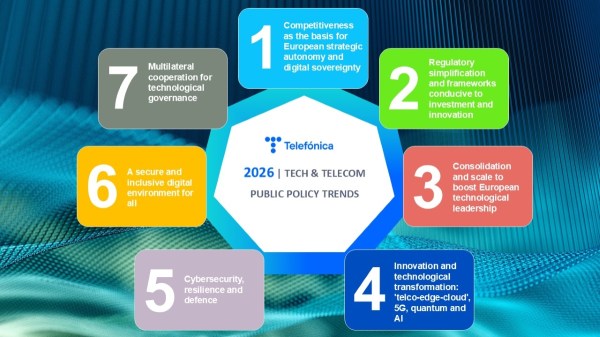Finding an appealing mantra or buzzword is key to success in a public debate on a complicated issue. Though many people might not know what Net Neutrality truly stands for, they strongly support it: who would not want internet networks to be neutral? Big Techs are fully aware of the heated discussions that threats to Net Neutrality trigger among policymakers and consumers. It is therefore no surprise that they continue to fall back on these threats as their ‘go to’ excuse for opposing policy initiatives related to connectivity – even if Net Neutrality has little or nothing to do with the initiative in the first place.
A perfect example of this approach in action is Big Tech’s arguments against the Fair Share proposal to address the investment gap holding back Europe’s internet infrastructure. The premise of the proposal is for Large Traffic Generators (LTGs) – those who exceed a 5% bandwidth threshold on telecoms operators’ national networks – to pay for the data traffic delivery service received and thus contribute to the sustainability of internet networks. The proposal would clearly uphold Net Neutrality principles and have safeguards in place should these be undermined by any of the actors involved.
What does the European Commission think?
Importantly, the European Commission agrees that Fair Share does not violate the Open Internet and Net Neutrality. Commissioner Breton has already dismissed these fears: “We will not touch net neutrality. It is not a question of changing net neutrality. This is embedded in our values and our Digital Decade, so please stop saying this.” And the European Parliament’s recent approval of the report on competition policy including in paragraph 44 which “calls for the establishment of a policy framework where large traffic generators contribute fairly to the adequate funding of telecom networks without prejudice to net neutrality” provides an even stronger reassurance that any Fair Share proposal adopted will be fully aligned with European Open Internet Regulation (OIR) safeguarding Net Neutrality principles.
Yet, Big Tech continue to accuse the proposal of violating Net Neutrality, without substantiating how this would be the case, or how Fair Share would hamper innovation, media pluralism or freedom of speech. Unfortunately, deploying this powerful buzzword nonetheless has gained traction among some in Brussels and could ultimately lead to preventing the investment in internet infrastructure that Europe so clearly needs.
Reasons why Fair Share will not harm Net Neutrality
Now that the European Commission is reviewing the contributions to its consultation, we will address the red herring of Fair Share harming Net Neutrality directly:
Argument 1 – “Any form of mandated payments would be in stark contrast with EU Regulation”
The European Union’s OIR does not prohibit charging LTGs for the service they receive. Moreover, the OIR encourages parties “to agree with providers of internet access services on tariffs for specific data volumes and speeds of the internet access service”; provided that such agreements and commercial practices do not limit the exercise of the rights provided for in the Regulation.
Argument 2 – “Companies who can pay Internet Service Providers (ISPs) will be treated preferentially; CAPs that cannot – or refuse to – pay, will be discriminated against”
Fair Share does not affect traffic: it does not involve blocking, slowing down, altering, restricting, interfering with, degrading neither prioritizing the traffic. Fair Share conceives all CAPs – no matter if LTGs or just TGs- will be treated equally in terms of management of their traffic. All traffic will receive the same treatment. Neither the traffic of LTGs will be prioritised, nor will the traffic of other agents be throttled or degraded. All Internet traffic will continue to be treated equally by network operators; the service provided will be the same for all TGs and LTGs.
In the event of a dispute, breach or litigation over the Fair Share agreement between an LTG and a network operator, the traffic delivery service would have to continue to be provided. Any unilateral action to force compliance with the agreement, such as throttling an LTG, degrading or blocking its traffic would be in breach of OIR legislation and should therefore be subject to sanctions. This would be the case in a similar situation without Fair Share being adopted.
Fair Share will not affect access to an open and free Internet; as it does not restrict or limit the rights of end-users or affect the services that end-users utilize to send and receive information, access content and other services of their choice (Article 3.1 of OIR).
And it is not only inaccurate, but potentially harmful to Europeans, for Big Tech to continue to rely on this red herring. It distorts the debate and distracts from the crucial issue: Europe needs investments in its digital infrastructure for the benefit of all Europeans in the future. It is time for Big Tech to accept they have a role to play in making this happen.







